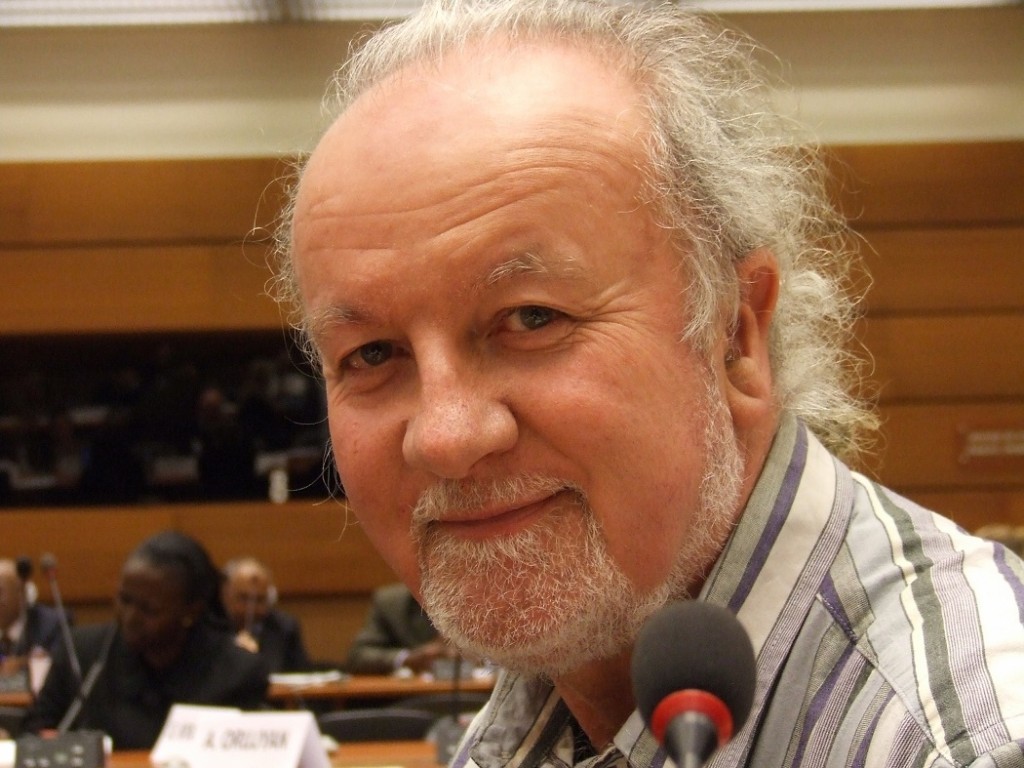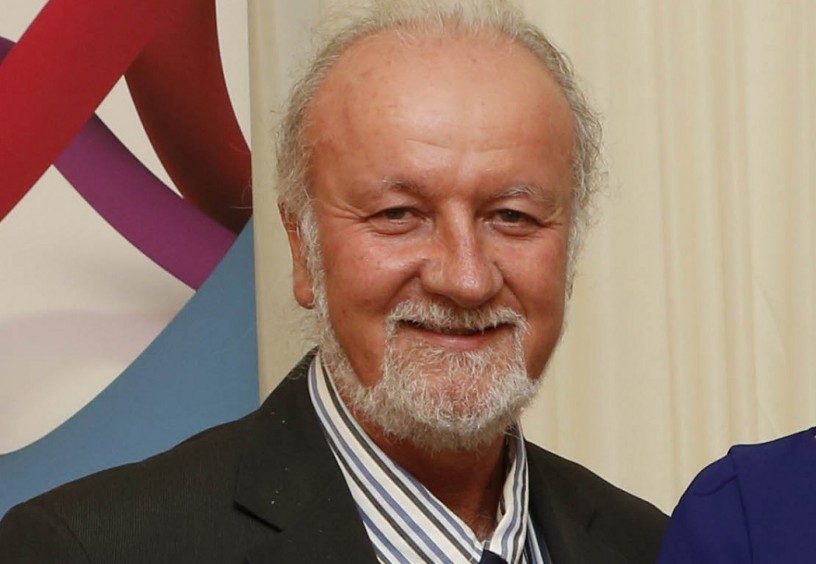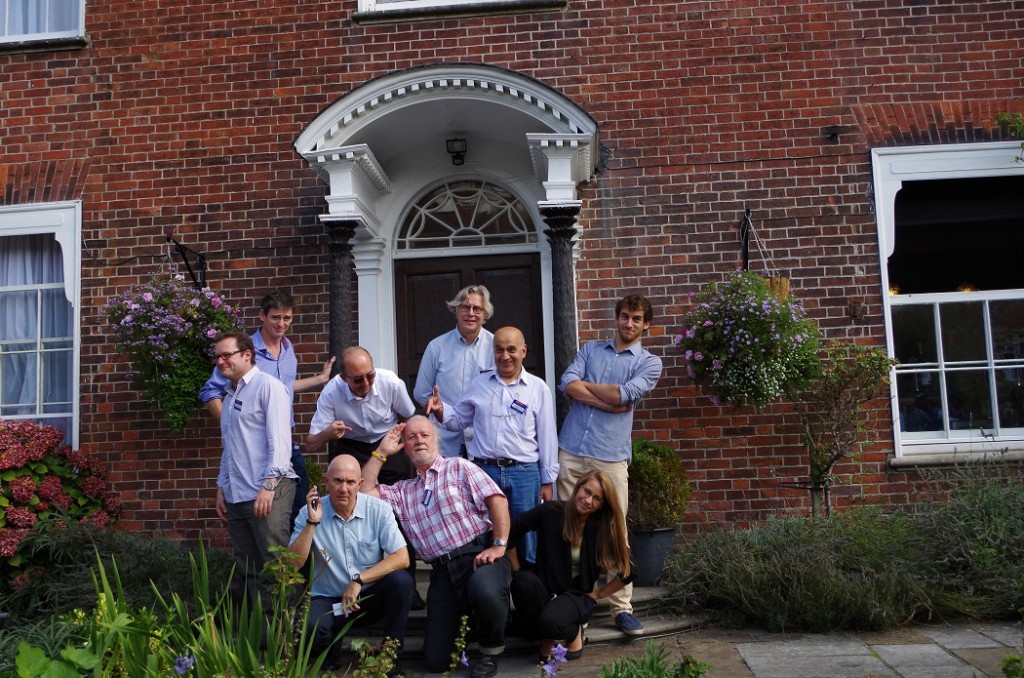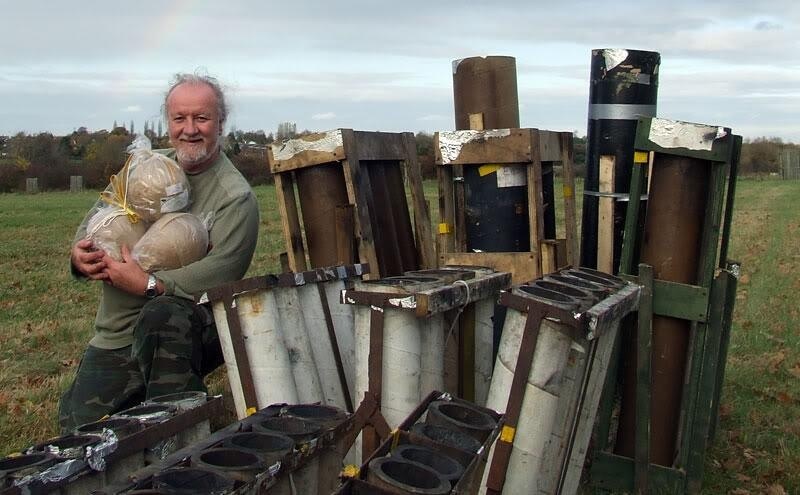In the spotlight:
Name: Andy Penaluna
Location: Always somewhere different
Occupation: Director, International Institute for Creative Entrepreneurial Development (IICED) at University of Wales Trinity Saint David
You are an influential individual within the enterprise education space. What does ‘enterprise education’ mean to you, and why do you think it’s important?
There are various definitions about what enterprise education is, but I rather like what the team at QAA came up with: that enterprise education is the front end of entrepreneurial endeavour, where skills like creativity, resilience, and the flexibility to deal with and reimagine problems come to the fore (which is very close to my personal background as a designer, as it happens). The natural extension of this is entrepreneurship education, where students can put their skills into practice.
Understanding these distinctions helps enormously (no matter what names we give them). It is important to focus on what we might call innovative capacity and not just business knowledge and skills, which is where we got stuck for quite some time. Many studies show that those taught to be managers are great at testing ideas, but extremely weak at coming up with them.
For me, enterprise education offers innovative skills that are useful to employers, especially small and micro businesses. Moreover, it’s all about helping students to succeed. As a teacher, what could be more important?
How did you first become involved with enterprise education?
Four reasons spring to mind:
1. Firstly, feedback from past students, who I must acknowledge as having influenced me to pursue this route, which they see as the key to success following graduation. Enterprise education is less about what current students think and more about how previous students felt their education helped them – or not, as the case may be! I learn so much from my past students – and have been using their feedback since the mid-1980s to help staff develop and improve our courses for current students – and often wonder why universities only seem to chase their alumni for money and not intelligence on what’s going on and what should matter in education.
2. Secondly, I realised quite late in my career that when I brought my small business experiences into my teaching, I was being entrepreneurial. It took my wife, an ex-bank manager, to explain the term to me, and I took a while to be convinced that she was right. She was, of course! Up until that point it just seemed common sense really.
3. Thirdly, I came to realise that there was a huge gap in what business schools were offering. I spent five years running a group for the UK’s Higher Education Academy and learned that testing and evaluation was the name of the game, and ideas generation was weak at best. So many student projects in business schools seemed to be about the obvious answers (I now call this ‘Premature Articulation’), whereas in my design education experience I was constantly being surprised by newness of thought. This led me to believe that design education clearly had a lot to offer business education, so I rather boldly set out to make the links overt in the mid-2000s.
Nowadays we hear about ‘design thinking’, but back in the 80s and 90s such terms didn’t exist, so my early work simply reflected what I saw as educational needs through my business experiences as a designer. Don’t forget that designers solve problems for companies and, in this capacity, I worked for more industries than I can recall. One common thing linked them: namely, that I was always spotting opportunities for companies when challenging their USPs, usually during briefings for things like company brochures and websites. By representing a huge range of small businesses and helping them evolve, I too evolved my understanding as to what made them tick. By stealth I was learning to be entrepreneurial. Passing this on to my students was simply obvious to me, but not all my colleagues were in full agreement, so some things were snuck in via alumni visits and such like, which I guess is entrepreneurial in itself.
4. Finally, in terms of being first involved in an overt way, I guess it might be 2006 when the Higher Education Academy’s research held my course up to be one of the top five case studies in the UK. That was a huge surprise, but motivated me to do more.
What innovative teaching methods and practices do you use to introduce enterprise education to your students?
Early on I got students to keep time records so they knew how long they took on their projects, then I asked them to calculate an hourly rate and apply this sum to their work. That was fun, and eyebrows were raised when they realised what something as simple as an essay would cost if it were to be a report for a company, or what a brand design concept would cost before it was fully developed. Over time it all became more realistic. They wrote invoices each week, priced up student projects, and started to estimate how much time was needed to complete jobs. When they left it was obvious they knew how to charge out their time and expenses with a degree of confidence.
I designed projects where students became curious to learn more, for example about often-overlooked areas like Intellectual Property. I made the boring subjects fun by inventing situations where they had to make decisions, which in turn led to them working out things like copyright for themselves. Leaving them hungry to learn more is really motivational, so knowing when to be quiet as a teacher is an art in itself.
I developed specific modules, too. For example, one module required students to market their skills to others via an application for a job that didn’t exist yet. That way the focus was on their personal skills and abilities, not on them trying to match specific job criteria. Past students helped me with all of this, of course, and we did dummy interviews that challenged the students’ thinking. Many of them were nervous the first time they did it, but their post-graduation responses about how useful it all was gave me the confidence to continue.
How does enterprise education benefit students today?
Much of my time is spent explaining how creative minds work, and I think this is an area in which we will see abundant change in the future. Just imagine if we don’t help students to develop their creativity? What mundane and unimaginative jobs will there be a few years’ time to employ them in?
I also see an issue that may surprise you. Because of the nature of standardisation in schools, the job seems to be getting tougher, not easier. Whilst we want our students to become self-directed and self-dependant, existing systems conspire to make them very reliant on the teacher, and they are unable to see beyond the notion of the teacher’s ‘correct’ answers. I now use the term ‘unlearning’ because in a student’s first few months at university that seems to be our role. I think that is one of the real benefits we offer, simply because what we learn today may be out of date tomorrow, so it is a skill in itself. I doubt if it is an approach we would have considered necessary a few years ago.
How do you evaluate and measure the success of enterprise education generally, and your own teaching innovations specifically?
Recognition by others has been a major thing, and being elected to run Enterprise Educators for a year as CEO/Chair made me stop and think about why I was voted in. It was a very humbling experience when I started to visit all the universities who were members. They knew so much more than I did; yet I was the figurehead and spokesperson.
Of course, when the United Nations Chief of Entrepreneurship asks you if you can supervise their research into developing innovation capacity across 37 countries, you can’t help but wonder if you are on to something! It is imprinted on my memory what it was like to stand in the UN’s Palace in Geneva to take questions from all over the world. Being able to answer them all was a surprise, and I suddenly realised just how much I’d learned from everyone in EEUK alongside my own teaching.
As for measuring, well that’s for people who can predict the future and measure our success (or failure) against it. The only trouble is, I don’t know anyone who can accurately predict the future at all (just think of Brexit and Trump)!
On that note, the EU has been a major contributor to this field, so helping them to develop EntreComp learning outcomes was a real honour for me. The big picture of social and economic success is one thing, but seeing detailed improvements in ways that we could only dream about a few years back will make a huge difference.

Andy Penaluna at the United Nations
There’s an age-old debate about whether entrepreneurs are born or made. Can you weigh into this?
This debate is long past, I think, and I tend to agree with expert cognitive neurologists such as John Kounios on this one. We may be born to fat or thin parents, but our lifestyles and learning choices will determine our future health, shape, and longevity.
Remember that our brains are ‘plastic’ and evolve according to stimulus and environment, so we may be born with an advantage but our experiences and learning impact significantly on our knowledge and abilities. This means change in thinking and behaviour is possible.
‘Made’ may be the wrong word, in my view, but can entrepreneurs be encouraged, nurtured, and mentored? Well yes, of course they can. Just don’t expect it all to be at the same level, because situations and opportunities are rarely the same for two different people.
There is one huge aspect that is often overlooked, by the way, namely that we learn just as much through observing our teachers as we do from what they tell us. It is common sense when you think about it, but an unconvincing teacher will have far less impact than one who clearly practices what they preach and gains our trust.
Where do you hope to see enterprise education in five years’ time?
I’m a realist, let’s say 10 years!
First of all, we have to agree what education is supposed to be for. Is employability just about that first job, or should we be looking ahead to the long game? To me that’s what enterprise education is all about: helping to future proof our learners.
Education crawls along slowly and, whilst I see Welsh and Macedonian governments grasping the nettle, I see less development in the so-called confident and more traditional education environments. The TEF is supposed to counter the REF (Teaching Excellence versus Research Excellence) in the university sector but, from what I’ve seen so far, the ‘measuring’ aspects will hold us back for some time. This is a moving target and, until governance is developed that works with that, we may not get too far.
Ask any educator if teaching entrepreneurially makes a difference and the enthusiastic responses tell many similar tales. Harnessing those insights and making them more visible without killing the very creativity that we wish to engender is a huge challenge, but I do see it happening. Indeed, it is no surprise that the European Commission has developed new tools to address skills gaps that have been identified, and many of these don’t match traditional tests and examinations. How and when we change is the question as far as I am concerned; I don’t see ‘if’ as being arguable any more.
What does a typical day look like in the world of Andy Penaluna?
Right now? Train rides with a hot laptop to hand, flights to countries enthusiastic to engage, reading too many emails and messages (but I love the ones from past students), responding to cries for help, explaining what needs to change, wondering when I’ll get home again and, when I’m lucky, getting to drive one of my old classic cars.
Last night I was at a prestigious Higher Education Awards ceremony in central London and was collared by an alumnus from about 15 years ago whose team was up for two awards. Those moments are the real joy, learning how people have progressed and being told that their education made a big difference to their lives.
I’m also at the end of a three year/eight country project in South East Europe, where pilot schools have been working to entrepreneurial learning outcomes and teachers have utilised special ways to work with their managers – all based on entrepreneurialism. I was supposed to be the expert speaker to a very large group of senior academics and policy makers at the end of the event but, when my turn to speak on the stage came, I simply passed the microphone to a group of 8-16 year olds at the back of the room who answered every question posed to them. I didn’t say a single word. That’s the power of helping young people to develop their own dreams.
And finally, Andy, tell us: if you were an animal, what would you be and why?
Acinonyx jubatus – or, as you may call it, a Cheetah. Short spurts to places at high speed, swift changes of direction as required, and always having an eye out for opportunity. Of course, cheetah numbers are declining and they are vulnerable, but vulnerability is all part of this game. The bit I’m not so good at is hiding away and waiting; I am way too sociable for that!







Leave a Reply